Georgia switches to proportional electoral system bowing to protesters’ demands

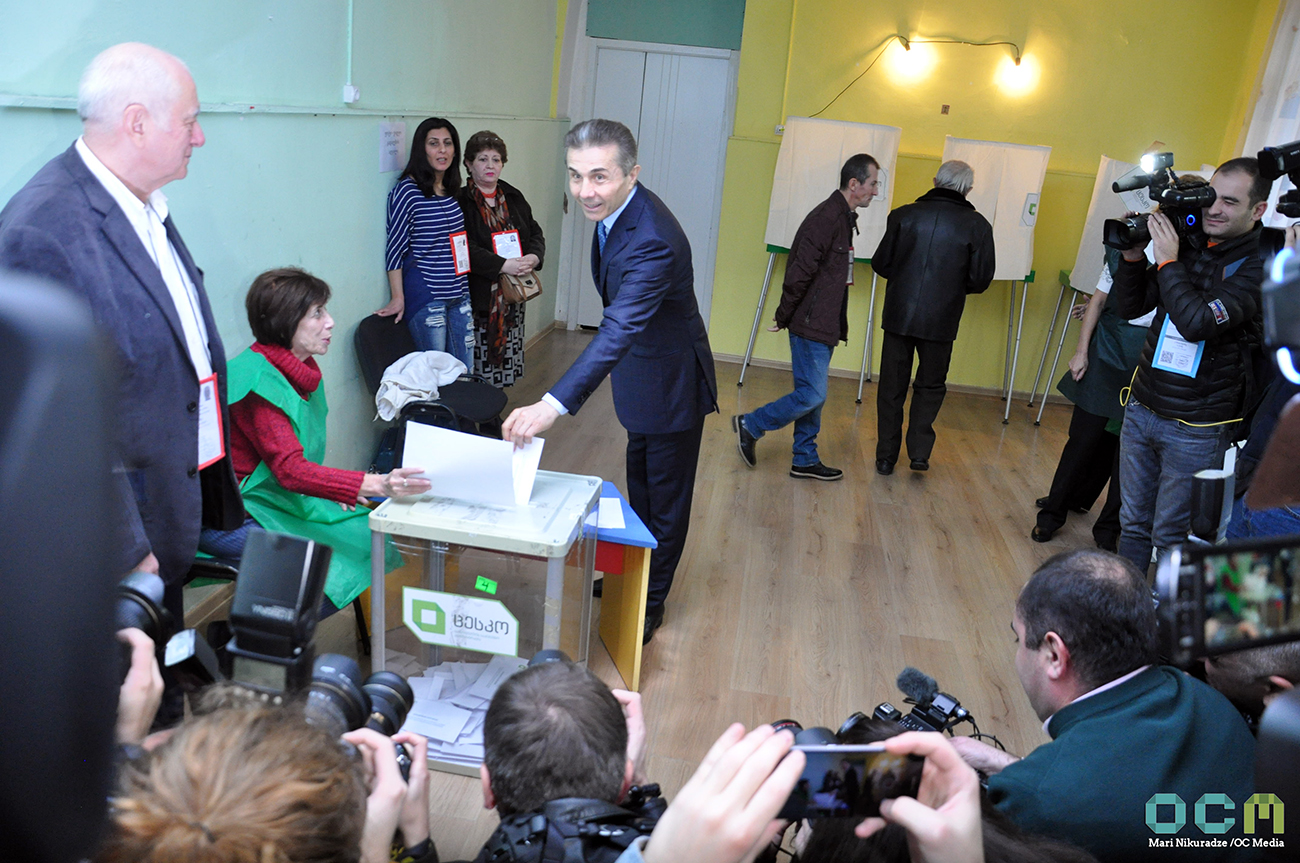
Georgia’s 2020 Parliamentary elections will be held with a proportional system and with no threshold to enter parliament, Georgian Dream Chair Bidzina Ivanishvili has announced. This was one of the key demands of protesters who have gathered outside parliament in their thousands for the last four days.
Thousands have continued to protest police violence against demonstrators in Tbilisi since 20 June, after protests first broke out over a Russian MP addressing parliament from the Speaker’s chair.
Sergey Gavrilov, a member of the Russian Duma from the Communist Party addressed delegates of the 26th General Inter-Parliamentary Assembly of Orthodoxy (IAO) in his native Russian language.
A protest that started on Thursday evening ended in violent clashes between demonstrators and riot police. Police deployed tear gas, rubber bullets, and a water cannon against protesters who tried to storm the Georgian Parliament after calls to do so from the opposition United National Movement party.
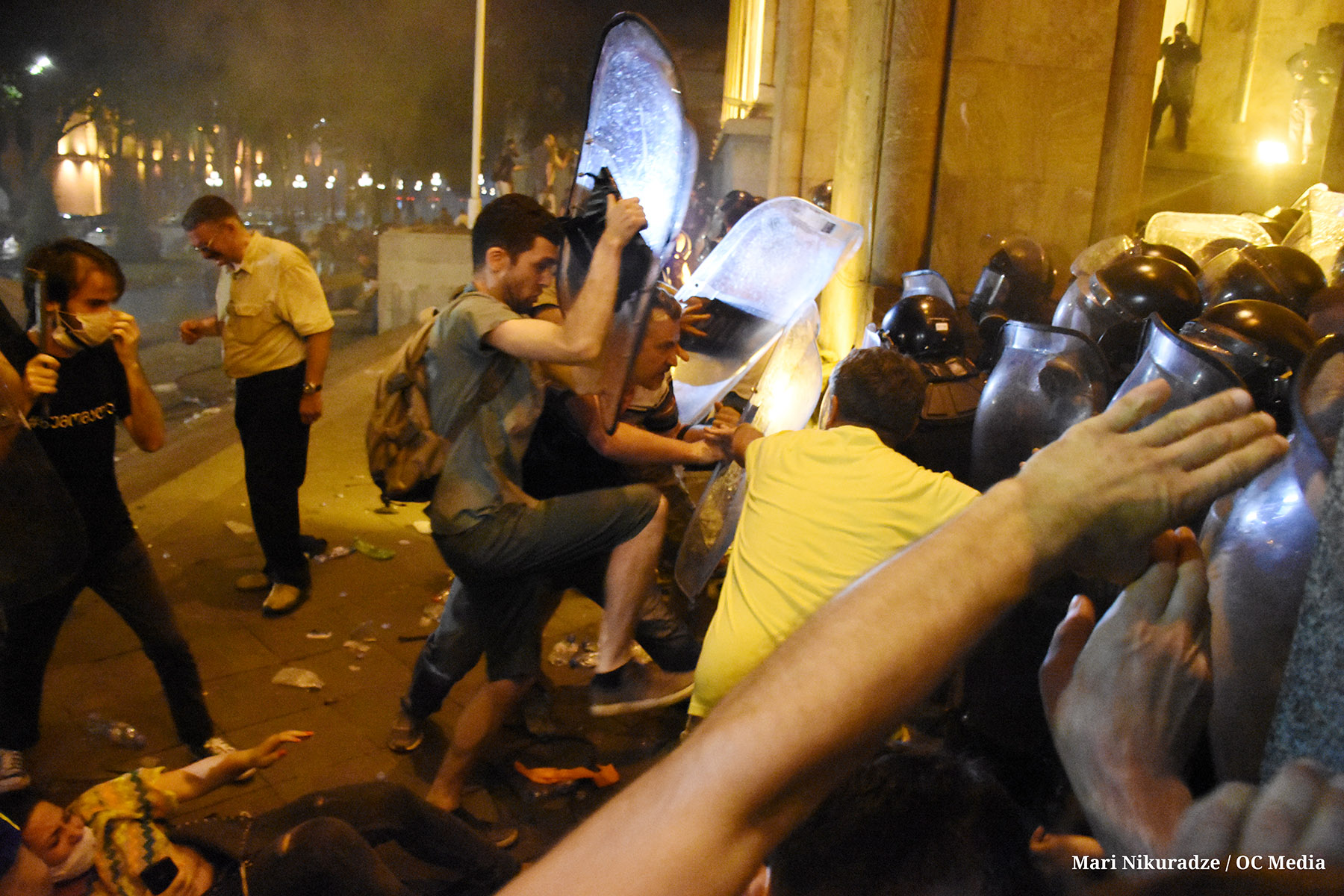
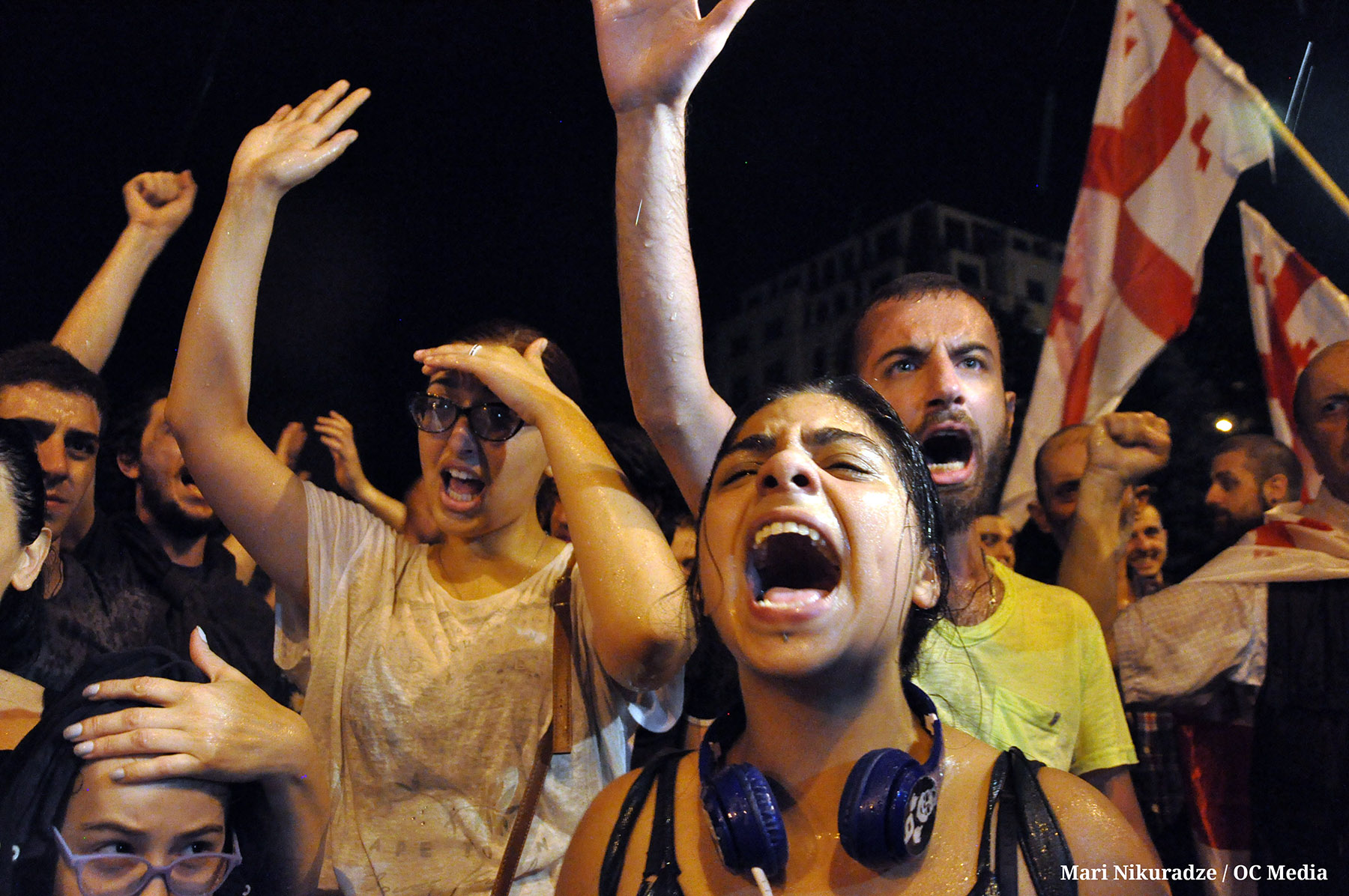
As a consequence, 240 people had to be hospitalised including 80 police officers, according to the Deputy Health Minister Zaza Bokhua.
At least three people were shot in the eye with rubber bullets and may lose their eyesight as a result.
On Monday afternoon, the Prosecutor’s Office announced they had opened an investigation into allegations of police abuse during the protests. They appealed to the public to submit evidence of police wrongdoing in order to assist their investigation.
The Interior Ministry said their General Inspection had suspended 10 police officers pending the outcome of the investigation, and that two of them may face criminal charges.
Three-hundred-and-five people were arrested Thursday night on charges of disobeying police and petty hooliganism.
Since then, protesters have come out on four consecutive days, with chants of ‘Putin Khuilo’ (Putin is a dickhead) frequently heard in protests against Russia’s interventions in Abkhazia and South Ossetia.
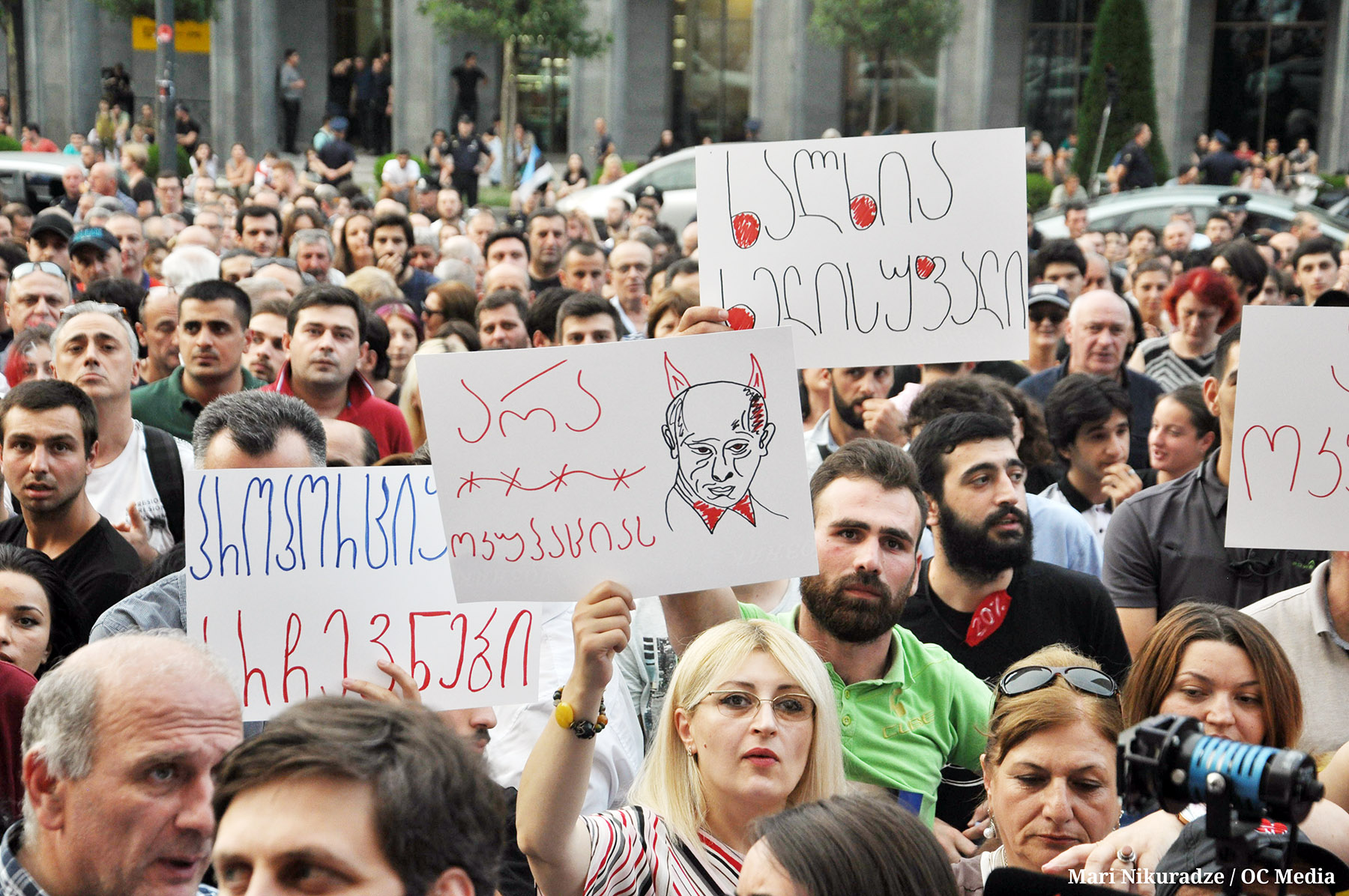
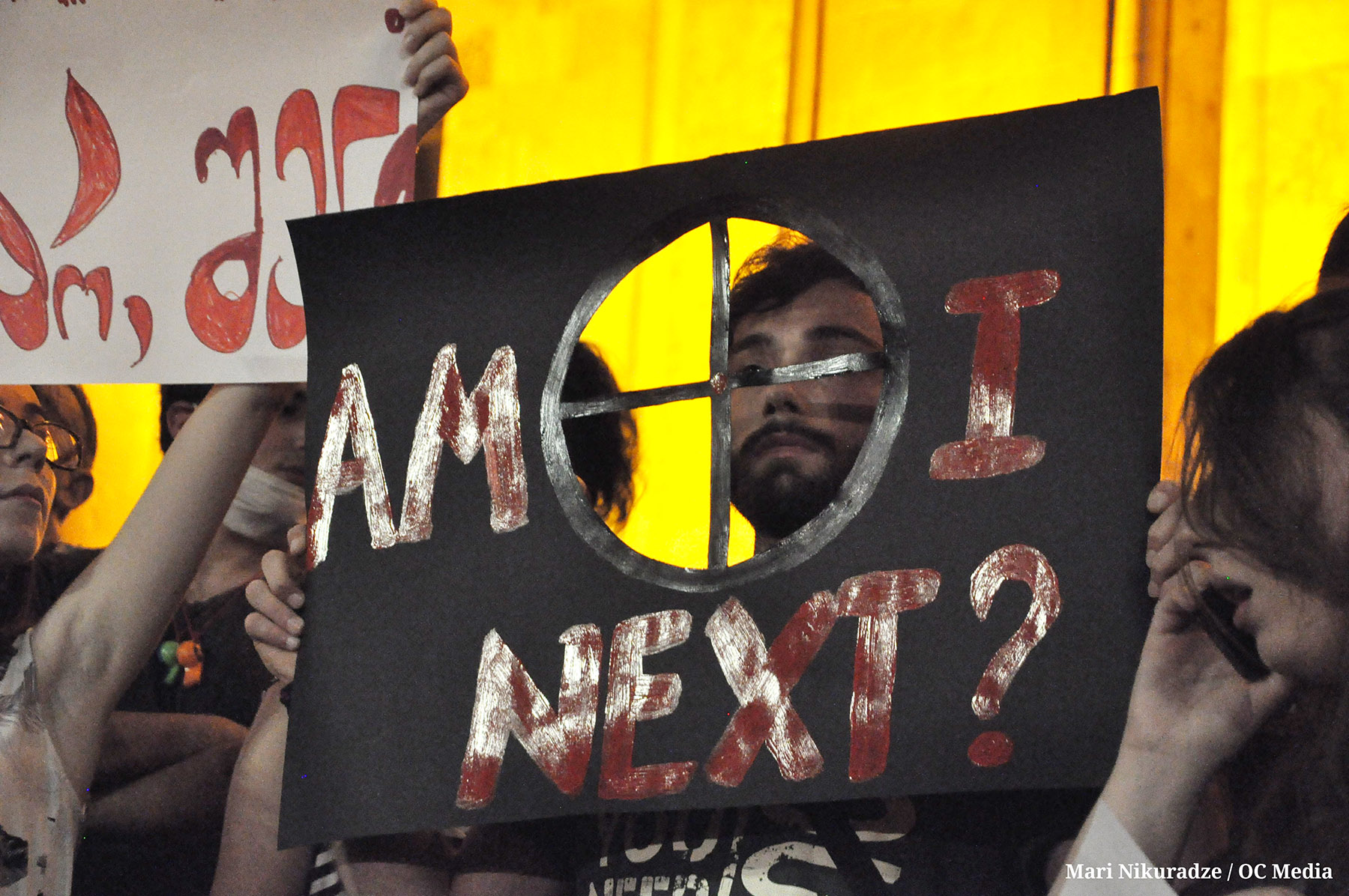
Calls for more resignations
On 21 June, Irakli Kobakhidze stepped down as chair of the Georgian Parliament in response to protesters’ demands.
[Read more: Georgian Parliamentary speaker resigns amidst anti-Russia protests]
Since his resignation, protesters have voiced three main demands, that Interior Minister Giorgi Gakharia resign, that the protesters detained are released, and that 2020’s elections be held with a fully proportional system
Gakharia who has remained in his position, said on Friday that police were ‘forced to use special non-lethal means’.
He added that ‘whoever organised the transformation of peaceful demonstrations into a violent one and orchestrated the storming of the parliament and against the police, will be very severely punished’.
The decision to change to proportional elections was announced following a meeting of Georgian Dream’s political council on Monday. Ivanishvili declined to answer questions by journalists following the meeting over whether Gakharia would step down.
However, Georgian Dream general secretary and Tbilisi Mayor Kakha Kaladze said that party officials had not discussed Gakharia’s resignation during the meeting.
Tamar Chugoshvili, the First Deputy Chairperson of the Parliament, said the party did not see the need for Gakharia to take ‘political responsibility’.
Electoral changes
In Georgia’s current electoral system, 77 MPs are elected with proportional system and the remaining 73 with majoritarian constituency elections.
Majoritarian candidates need to gain more than 50% of votes in their constituency to be elected, with runoff elections being held if no candidate does so in the first round.
Additionally, parties had to cross a 5% threshold in order to be represented in the parliament.
A proportional system, which was demanded by the opposition and protesters will ensure a more diverse representation of political parties in the Parliament, unlike majoritarian systems, which usually results in two-party systems.

Several smaller parties previously represented in parliament failed to gain any seats in 2016 after polling under 5%, including the Free Democrats, led by former Defence Minister Irakli Alasania, and the Republicans, led by former parliamentary chair David Usupashvili.
Only three parties won seats, Georgian Dream, the United National Movement, and the Alliance of Patriots, who barely crossed the threshold with 5.01% of votes.









